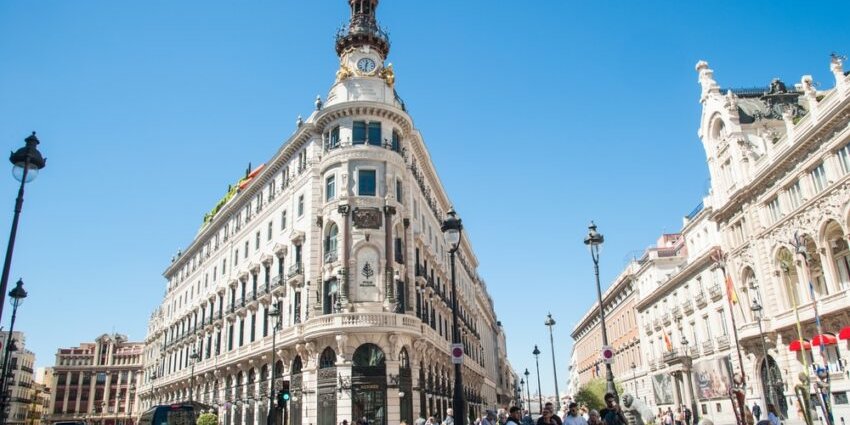If you’re thinking about starting a business in Spain as a UK citizen, you might want to look into something called the Spain entrepreneur visa (aka startup visa).
Basically, the Spain entrepreneur visa is a residency permit for people who want to set up or grow a business there. But it’s not just handed out to anyone. Your business has to somehow benefit Spain’s economy or public. You could get a 3-year residence permit if your plan ticks those boxes.
That said, it ain’t easy. The rules are pretty tight, and if you’re not careful, you could waste time and money. Imagine going through all that paperwork just to get a rejection. That’s why, honestly, before jumping into this whole process, you really should talk to Lucia Lagunas Reyes. She’s one of the top lawyers who deals with these kinds of visas.
You got to tell her everything—like, what’s going on in your life and what your business idea is. She’ll take a look at your situation and let you know if it’s worth applying or not.
Business Plan Requirements
When it comes to applying for an entrepreneur visa in Spain, your business idea isn’t just important—it’severything. Under Law 14/2013, also known as the Entrepreneurs Law, the strength of your business concept can make or break your application.
But what does that really mean for you? Well, it’s not enough to just have any old idea. The law is crystal clear on this: your business needs to meet three key conditions to stand a chance.
First, and most importantly, your idea must be unique. Spain is looking for originality, something fresh that stands out from the crowd.
Next, you’ll need to show that your business won’t just sit in Spain—it’ll grow, generate revenue, and eventually create jobs for people here. After all, you’re not just setting up shop for yourself, but contributing to the local economy.
Finally, there’s the investment factor. Your business has to provide real opportunities for investment within the country. Spain wants businesses that fuel growth and encourage financial investment, so this part is key.
Entrepreneur VISA requirements
While Spain’s Startup Visa offers great benefits, there are a few essential requirements you’ll need to meet before you pack your bags and head to sunny Spain:
- First off, you need to make sure you’re in the country legally. Being on Spanish soil without proper documentation can cause some issues.
- You’ll need to be at least 18 years old to apply. No minors allowed for this one!
- Have a clean slate when it comes to criminal records, both in Spain and anywhere you’ve lived in the past 5 years. They want to make sure everything checks out before granting the visa.
- You can’t be on a “no-entry” list for any countries that have agreements with Spain. It’s worth double-checking this before applying!
- Health insurance is a must. Whether you go for public or private insurance, just make sure you’re covered.
- And don’t forget about the finances: you need to show you have enough to support yourself and your family while you’re here. The numbers? You’ll need at least €2400 per month for yourself, plus €600 for each family member you’re bringing along.
- Finally, don’t forget to pay the Entrepreneur or Startup Visa fee – no skipping this step!
When it is better to apply for Self-Employment Visa?
If you’re thinking of starting a business in Spain as a foreigner or buying one in Spain, but don’t fit into the Residency Visa for Entrepreneurs (REM) or Business Activity thing, or maybe you’re thinking freelance, there’s another way. You can apply for a Self-employed work visa (autonomo visa Spain). Yeah, you can do that.
If you’re gonna start a business, first, you’ll have to set up a company. Simple as that. After that, you’ll need to snag the right licenses for whatever it is you’re doing, and of course, you’ll have to invest. There’s not really a set amount you have to put in, though. It just depends on the type of business, and if you’re hiring employees or not.
But hold up—you also need to make sure you’ve got enough cash to keep things running smoothly for the first year, plus enough to cover your own living expenses while you’re at it.
If you’re leaning more towards freelance or independent contractor work, you might need to prove that some Spanish companies have already agreed to hire you for their projects.
This visa they give? It’s good for a year. And, within that first month of landing in Spain, you have to apply for a residence permit, get a foreign national ID, and sign yourself up with Spain’s Social Security as self-employed.
The residence permit typically lasts two years and can be renewed, as long as you’re still meeting the requirements and you’ve been in Spain for at least 183 days a year.
After five years, you can go for permanent residency, meaning you get to live and work in Spain forever.











